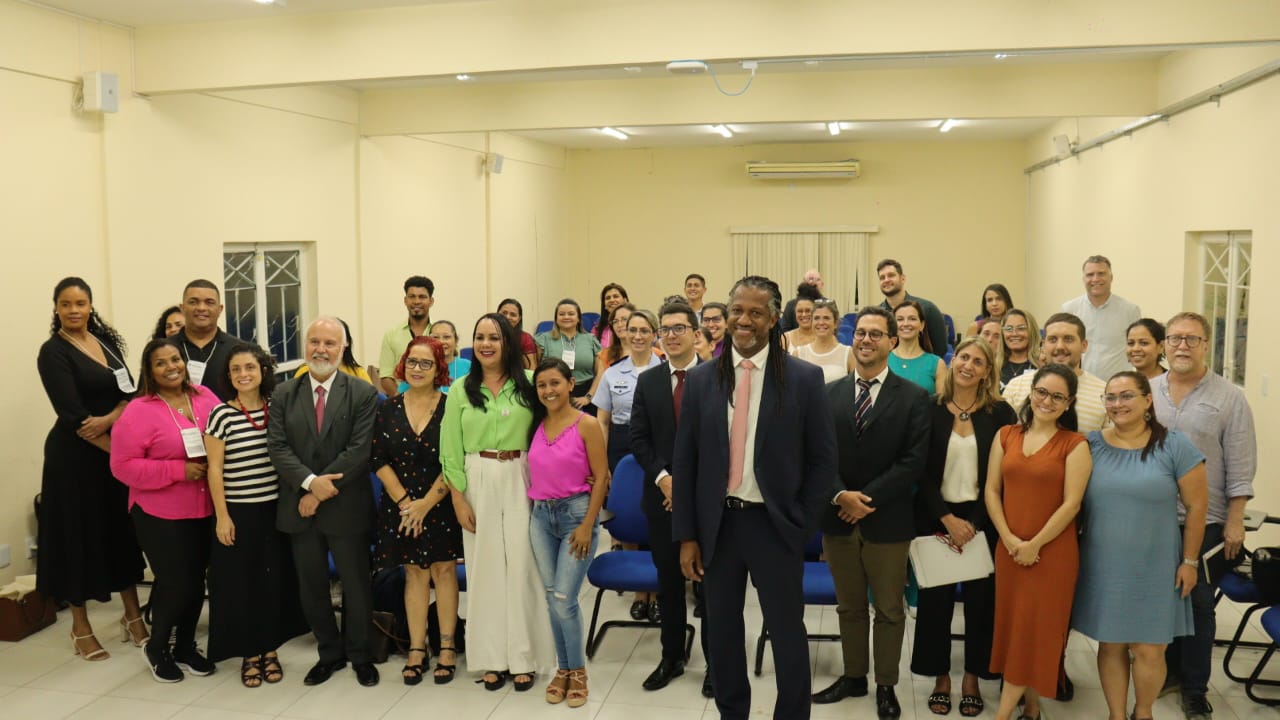
The Latin American Program (LAP) works to advance the mission of the Auschwitz Institute for the Prevention of Genocide and Mass Atrocities (AIPG) by providing education, training, and technical assistance to government officials including national armed forces and other security sector actors, policymakers, civil society leaders, and academic experts in the region. The LAP operates with the objective of advancing policy initiatives and projects that strengthen democratic principles and institutions, making them accessible to minority and marginalized communities across Latin America. Coordinated from its office in Buenos Aires, Argentina, AIPG’s LAP develops and supports the implementation of programming that incorporates atrocity prevention into educational policies, anti-discrimination initiatives, and human rights agendas, as well as other regional, national, and local measures that protect vulnerable populations.
The priorities of the Latin American Program are reflected in its capacity building initiatives, which work to fight against discrimination, protect vulnerable groups, and advance measures related to the essential roles played by memory, truth, and justice in the prevention of mass atrocities in the region. These priorities underscore the Program’s thematic focus areas, including the defense of indigenous peoples and LGBTI+ communities, migratory and refugee populations, as well as the role of armed and security forces and education within the general framework of preventive policies.
Thus far, more than 900 Latin American officials have completed AIPG’s foundational training program on the prevention of mass atrocities. After completing an AIPG program, participating officials become part of AIPG’s regional and global alumni communities, allowing the LAP to continue supporting them in strengthening the prevention agenda across governments and institutions in Latin America.
Many participating officials have also benefited from access to both in-person and online thematic courses designed specifically for participants in the region. AIPG has developed courses for Latin American participants on atrocity prevention concepts, such as Transitional Justice, as well as on practical contemporary challenges, such as the protection of vulnerable communities like LGTBI+ collectives, migrants and refugees, and Indigenous populations.
In terms of technical assistance, the Auschwitz Institute’s Latin American Program has contributed to advancing a series of agreements and supporting materials that establish regional standards and recommendations for preventive capacities. Among the practical tools and materials developed by AIPG for this purpose are on Indigenous Peoples and Atrocity Prevention and The Rights of LGTBI+ People in Latin America; a Handbook of Recommendations for the Protection of Migrants and Refugees from the Perspective of Atrocity Prevention and a Guide on Self-Care Mechanisms for Refugees and Migrants for Colombia. The LAP also published a baseline study on human rights education in Ecuador, with an emphasis on the relationship between human mobility and atrocity prevention through case studies on the cities of Quito, Ibarra, and Santo Domingo de los Tsáchilas among others. To advance its work on the protection of migrant communities within the context of the Venezuelan migrant crisis, the Latin American Program collaborated with the national-level Offices of the Ombudsperson in Colombia and Ecuador.
The training and technical assistance measures implemented as a part of this collaboration facilitated the creation of spaces for dialogue and cooperation toward the design of effective tools and evidence based policies for joint implementation at the local level between more than 200 public officials and representatives of community, national, and international organizations.
The Auschwitz Institute’s Latin American Program is committed to enhancing alliances between national institutions and civil society organizations throughout the region. AIPG will continue to observe prevention-sensitive phenomena in Latin America and risk factors for atrocity violence in order to facilitate the development of training programs, research initiatives, and practical tools to address them. AIPG’s work in Latin America is inspired by a commitment to learn from the experiences of the past in order to build more peaceful and inclusive societies. The effectiveness of AIPG’s Latin American Programs relies on the backing of partners whose generosity provides us with the necessary resources to engage key public officials and sustain vital regional and international networks dedicated to the prevention of future genocides and other mass atrocities.
---
AIPG recognizes and values the importance of inclusive language to make women visible and promote gender equality, as well as the relevance of non-binary language to adequately address the diversity of gender identities. Therefore, we understand that using gender-sensitive language can contribute to creating a more egalitarian, inclusive, and respectful environment. Our inclusive language disclaimer in Spanish is available here.
Nehuén D'Adam - Program Administrative Officer, Latin American Program - nehuen.dadam@auschwitzinstitute.org
Eugenia Carbone joined the Auschwitz Institute in 2013. A lawyer, Ms. Carbone specialized in Interna...
